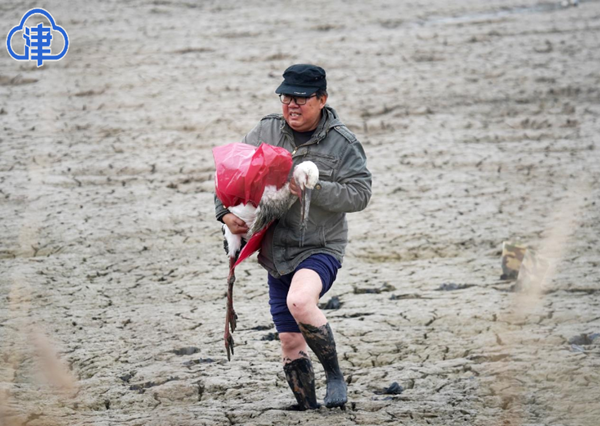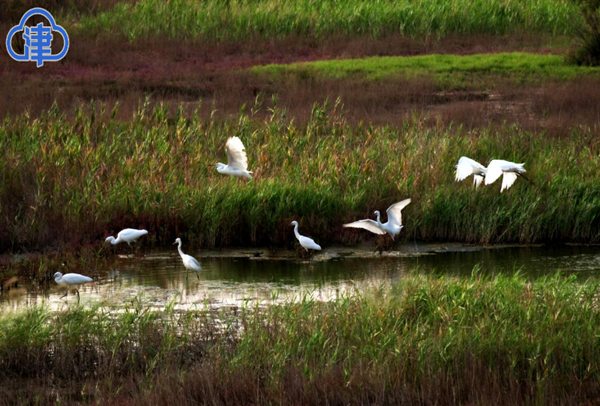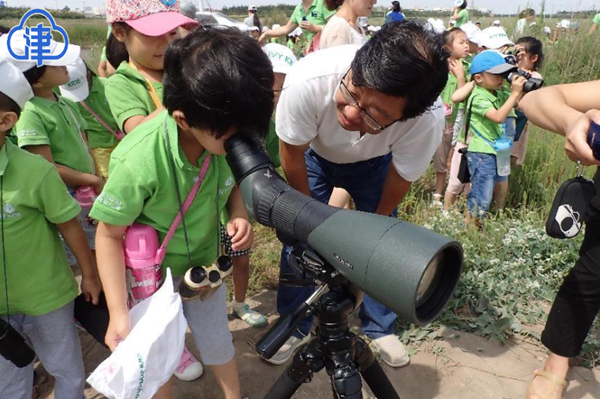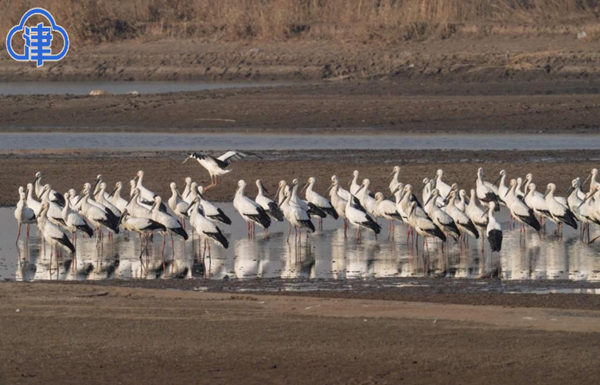Tianjin’s dedicated voluntary bird protector sees changes

Every autumn and winter, Beidagang wetland, the largest wetland nature reserve in Tianjin and an essential bird habitat in China, welcomes millions of migratory birds. Wang Jianmin, 63, one of the volunteer wetland protectors, embraces this busy season.
He stays in the wetlands, observing and protecting old friends coming from afar.“They make my hometown Tianjin a more beautiful place, and I’ll do everything to protect them.”
With a pair of binoculars and a camera, Wang usually spends hours hidden in the reeds recording the number and species of birds. As such, he knows too well about the wetlands and the birds.

He recently drove 4,000km to Hunan province to visit three oriental white storks that he helped raise in Tianjin.“I just want to make sure they live a healthy and happy life in nature”, he said.
In April, 2022, the chicks were found abandoned in the wetland by patrol workers, and were sent to Wang to be reared. Wang and his team attentively cared for the baby birds for months. Once they grew up, they managed to provide rewilding training for the birds.

Despite being prudent with his finances, he spends about 80 percent of his yearly income on feeding and caring for birds. As the season of migratory birds arrived, the three oriental white storks rejoined the colony and migrated south.
In addition to daily wetland patrols and bird surveys, Wang and his team often give lectures on bird protection in schools, villages, communities, and institutions. Wang has continuously expanded the team of bird protection volunteers to attract more people to participate in bird protection. He said that the most significant change in the past few years is that the people's awareness of ecological protection has increased significantly.

With the protection and restoration of wetlands, the ecological environment has improved rapidly. Compared with 10 years ago, the number of bird species in Tianjin has increased by dozens, among which the number of oriental white storks has tripled, reaching more than 5,000 at the peak.
 京公网安备 11010802027341号
京公网安备 11010802027341号